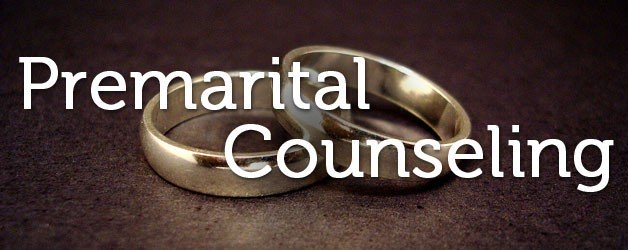Love is one of life’s greatest joys, but it can also be one of its most painful lessons. Falling in love is often effortless—staying in love, however, requires intention, understanding, and growth. Unfortunately, many people repeat the same mistakes in relationships, hoping for a different outcome, only to end up disappointed, heartbroken, or confused about why things didn’t work out.
The truth? Most relationship breakdowns don’t happen because partners stop loving each other. They happen because of patterns of behavior that slowly erode trust, intimacy, and connection. The good news is that these patterns can be recognized and changed—and this is where relationship coaching comes in.
Let’s explore the top 5 mistakes people make in love, and more importantly, how coaching offers powerful solutions to fix them.
 Mistake 1: Losing Yourself in the Relationship
Mistake 1: Losing Yourself in the Relationship
It’s easy to get swept away by love and forget about yourself. Many people pour all their time and energy into their partner, slowly neglecting their own needs, passions, and individuality. At first, it may feel romantic, but over time, it creates imbalance and resentment.
Why It’s a Problem
- The relationship becomes suffocating for one partner.
- Self-worth begins to depend solely on the other person.
- Hobbies, friendships, and personal growth are lost.
How Coaching Fixes It
Coaches help individuals rediscover their sense of self within the relationship. They teach that love thrives when both partners bring their full, authentic selves into the union. Through self-awareness exercises and boundary setting, coaching encourages:
- A healthy balance of “me” and “we.”
- Personal hobbies and goals alongside shared ones.
- Greater attraction and respect between partners.
Mistake 2: Poor Communication
Communication isn’t just about talking—it’s about being understood. One of the most common mistakes couples make is assuming their partner “should know” what they feel or need. When communication is unclear, misunderstandings pile up, leading to conflict or emotional distance.
Why It’s a Problem
- Arguments become repetitive and unresolved.
- Partners feel unheard and undervalued.
- Small issues grow into major resentments.
How Coaching Fixes It
Relationship coaching equips couples with tools for clear, compassionate, and constructive communication. Coaches often introduce strategies like:
- Active listening – fully hearing your partner without planning your reply.
- “I feel” statements – reducing blame and opening up vulnerability.
- Conflict blueprints – structured ways to resolve disagreements quickly.
Research consistently shows that communication is the strongest predictor of relationship satisfaction (Verywell Mind). With coaching, couples learn not just to talk—but to truly connect.
Mistake 3: Ignoring Red Flags
Love can be blinding. Many people overlook warning signs—disrespect, dishonesty, emotional unavailability—because they are too focused on holding onto the relationship. What starts as compromise can quickly turn into tolerating toxicity.
Why It’s a Problem
- Red flags often grow into deal-breakers.
- Trust erodes slowly until it collapses.
- Partners feel stuck in unhealthy cycles.
How Coaching Fixes It
Coaches help clients build clarity around their values, boundaries, and deal-breakers. By encouraging honest reflection, coaching empowers individuals to:
- Recognize harmful patterns early.
- Distinguish between compromise and self-sacrifice.
- Make informed decisions about staying or leaving.
Instead of rationalizing red flags, coaching teaches people to address them head-on—protecting both emotional health and long-term happiness.
Mistake 4: Unrealistic Expectations
Many relationships struggle because of hidden expectations. People enter love expecting their partner to “complete” them, always agree with them, or provide constant happiness. These fairytale standards often lead to disappointment when reality doesn’t match fantasy.
Why It’s a Problem
- Partners feel pressured to live up to impossible ideals.
- Disappointments build resentment.
- Couples argue over unmet, unspoken expectations.
How Coaching Fixes It
Coaching creates space for realistic, healthy expectations. A coach helps couples differentiate between what’s fair to expect (respect, honesty, effort) and what’s unrealistic (perfection, mind-reading, constant harmony).
This shift:
- Reduces disappointment.
- Builds gratitude for what partners do bring.
- Encourages open conversations about needs and compromises.
By reframing expectations, couples create relationships rooted in reality—not fantasy.
Mistake 5: Fear of Vulnerability
Many people fear vulnerability because they equate it with weakness. They hide feelings, avoid difficult conversations, or build emotional walls. While this may feel protective, it actually creates distance.
Why It’s a Problem
- Partners never truly know each other.
- Intimacy suffers when emotions are hidden.
- Resentments stay buried until they explode.
How Coaching Fixes It
A coach helps individuals see vulnerability as a strength, not a weakness. By guiding clients through trust-building exercises, coaches encourage safe emotional openness. Vulnerability allows couples to:
- Share fears, dreams, and insecurities honestly.
- Build deeper intimacy and trust.
- Create emotional safety, where love can flourish.
As Brené Brown famously says, vulnerability is the birthplace of connection. Coaching turns fear into courage—making space for real love.
Quick Comparison: Mistakes vs. Coaching Solutions
Here’s a snapshot of how coaching directly addresses these five common mistakes:
| Mistake in Love | Impact | How Coaching Fixes It |
|---|---|---|
| Losing Yourself | Creates imbalance, dependency | Restores individuality and balance |
| Poor Communication | Leads to fights, misunderstandings | Builds tools for clarity and connection |
| Ignoring Red Flags | Causes toxic cycles and mistrust | Empowers boundary-setting and early recognition |
| Unrealistic Expectations | Leads to disappointment and resentment | Reframes expectations into realistic, healthy ones |
| Fear of Vulnerability | Blocks intimacy and trust | Encourages openness and emotional safety |
Why Coaching Works Better Than “Going It Alone”
When it comes to love, many people believe they can figure it out on their own. They lean on instincts, advice from friends, late-night Google searches, or maybe the occasional self-help book. While these resources can be helpful, they often lack one crucial ingredient: personalized, guided accountability. This is where coaching makes a decisive difference.
Coaching doesn’t replace the natural emotions of love—it channels them into healthier patterns. It provides clarity, structure, and strategies that most couples simply cannot develop alone. Let’s break down why coaching consistently outperforms a do-it-yourself approach in relationships.
1. Coaching Reveals Blind Spots You Can’t See
When you’re in love, it’s hard to be objective. Emotions cloud judgment, and habits feel “normal” even when they’re damaging. Without guidance, people repeat the same patterns over and over: dating emotionally unavailable partners, avoiding hard conversations, or expecting perfection.
A coach acts like a mirror—reflecting back behaviors, patterns, and blind spots you may not even notice. This level of awareness is almost impossible to achieve alone because you’re too close to the situation.
- Going it alone: You might excuse your partner’s constant lack of effort as “just who they are.”
- With coaching: You recognize it as a pattern of imbalance and learn strategies to address it.
2. Coaching Provides Accountability
Good intentions fade quickly. People promise themselves they’ll communicate better, set boundaries, or stop repeating toxic cycles—but without someone to hold them accountable, old habits return.
A relationship coach ensures you stick to your growth goals. They check in, ask tough questions, and track progress. This accountability keeps growth consistent, not just temporary.
- Going it alone: You read a book, get inspired, and change for a week—then slip back into old habits.
- With coaching: You’re reminded, encouraged, and challenged until new habits become second nature.
3. Coaching Offers Tailored Strategies
Relationships are not one-size-fits-all. What works for one couple may backfire for another. General advice from friends or online articles rarely fits unique dynamics.
Coaching is different because it is personalized. Coaches listen, analyze, and then provide strategies designed specifically for your challenges. This level of customization makes progress faster and more sustainable.
- Going it alone: You try generic advice like “communicate more” without knowing how.
- With coaching: You learn concrete tools—like “I feel” statements, weekly check-ins, or conflict blueprints—that directly apply to your situation.
4. Coaching Reduces Emotional Overload
When emotions run high, logic tends to disappear. In love, this often leads to impulsive choices—saying things you regret, breaking up in anger, or tolerating behavior you shouldn’t.
A coach provides an objective voice that calms the storm. They help separate feelings from facts, allowing couples to act with clarity instead of reactivity. This prevents small conflicts from turning into relationship-ending battles.
- Going it alone: A heated text argument escalates into silence for days.
- With coaching: You learn to pause, reframe the issue, and resolve it calmly.
5. Coaching Builds Long-Term Growth
Books, blogs, and podcasts can give temporary insight, but they rarely create lasting transformation. Coaching builds habits that last well beyond the sessions. Couples don’t just solve today’s fight—they learn how to handle tomorrow’s challenges too.
This is why coaching is considered an investment in lifelong skills, not just a quick fix. The growth you achieve with a coach benefits not only your current relationship but every future one as well.
- Going it alone: You stumble through relationships, hoping experience alone will teach you.
- With coaching: You acquire tested tools that save time, energy, and heartbreak.
Quick Comparison: Coaching vs. Going It Alone
| Aspect | Going It Alone | With Coaching |
|---|---|---|
| Self-Awareness | Limited, often blind to patterns | Clear feedback and identification of blind spots |
| Accountability | Weak, easy to slip back into old habits | Strong accountability keeps growth on track |
| Strategies | Generic, often trial-and-error | Tailored tools fit to your relationship dynamics |
| Emotional Balance | Easily overwhelmed by stress or arguments | Neutral guidance helps regulate emotions |
| Long-Term Impact | Slow, inconsistent growth through mistakes | Sustainable skills that apply to current and future love |
Why Coaching Works in Practice
Imagine two couples, both struggling with constant arguments. Couple A tries to fix things on their own—they promise to “fight less” but without clear strategies, they end up repeating the same cycle. Couple B hires a coach. They learn how to pause during conflicts, reframe blame into “I feel” statements, and set aside weekly time for meaningful check-ins. Within months, their arguments reduce, intimacy improves, and the relationship feels more secure.
The difference isn’t that Couple B loved each other more. It’s that they had guidance. Coaching provided the structure that transformed their effort into progress.
The Bigger Picture
Coaching works better than going it alone because it acknowledges a simple truth: love is natural, but healthy relationships are learned skills. Just as athletes hire coaches to refine their talents, couples and individuals can benefit from expert guidance to refine their love.
Love may be emotional, but relationships are practical too. Without support, mistakes repeat. With coaching, mistakes turn into stepping stones toward deeper intimacy and stronger bonds.
As Forbes highlights, coaching improves not just awareness but also results in meaningful behavioral change. Applied to love, this means relationships that don’t just survive—but thrive.
Final Thoughts: Love Needs Both Passion and Guidance
Love is powerful, but it is not enough by itself. Without awareness, love can slip into patterns of dependency, silence, or disconnection. The top five mistakes—losing yourself, poor communication, ignoring red flags, unrealistic expectations, and fear of vulnerability—are not signs that love has failed. They’re signs that growth is needed.
This is where coaching shines. It provides the tools, perspective, and support to fix what’s broken, strengthen what’s fragile, and transform love into something lasting.
So if you’ve been repeating the same mistakes in love, ask yourself: Isn’t it time to stop guessing and start growing? With coaching, love doesn’t just survive mistakes—it becomes stronger because of them.




